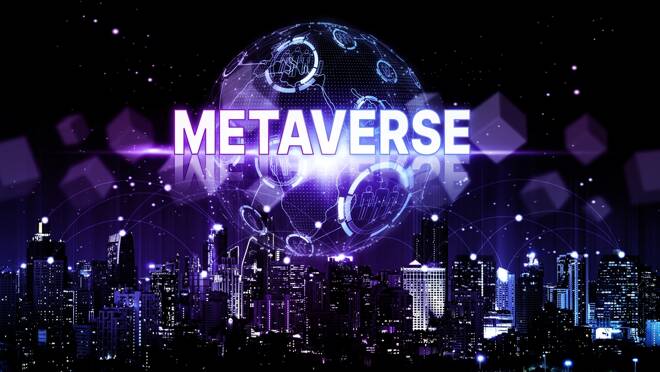Advertisement
Advertisement
Taking a Look at Land Tax in the Metaverse Space
By:
In the metaverse space, the rise of bizarre concepts like virtual real estate and more surprisingly virtual land tax has been generating interest of late.
In the crypto space, the metaverse is the latest buzzword that market participants believe holds significant potential in creating tremendous growth opportunities for marketers. The budding metaverse space has been capturing the imagination of organizations and techies thereby allowing them to deliver advanced immersive and interactive digital experiences to their customers.
In fact, the space has given way to bizarre concepts like metaverse real estate and more surprisingly metaverse land tax. Yes, you heard it right, a tax for virtual property in the virtual metaverse space.
Metaverse Real Estate and Land Tax
Reports revealed that interest in metaverse land has reached a new peak. By December 3, 2021, the sale of virtual real estate on metaverse projects had reached $100 million. Notably, this was the highest amount investors have spent on virtual real estate since the emergence of the latest trend. By now the number would be much higher with the meta mania taking over.
Further, news like Exclusible’s all 25 Private Islands on The Sandbox getting sold out reiterates the above notion about the growth of luxury NFTs and metaverse real estate. Metaverse land is a virtual property in the form of NFTs, which are unique digital tokens that can represent ownership in virtually anything online.
For now, metaverse land activities are actively taking place on the Ethereum blockchain with more and more projects coming up on Solana, The Sandbox, Decentraland, and others. However, virtual properties can sometimes become too valuable, and this reality is also nothing new. But how can early NFT-based virtual world projects avoid this pitfall and its more potent implications? Some experts are of the opinion that implementing a land value tax and a citizen’s dividend could be a promising solution.
Land Value Tax and Citizen’s Dividend
Indie game developer and game analyst Lars Doucet, argues that digital land crises in-game or virtual environments have historically stemmed from making digital land act too much like physical land. Notably, EVE, a game launched in 2003, saw a real estate crisis but the creators introduced a ‘use it or lose it’ fee that drove out the speculators who didn’t want to maintain the properties, and it saved EVE’s early economy. This fee can be described as a land tax.
Analysts have argued that ‘digital land tax’ isn’t the only way NFT-based virtual world projects can alleviate the land crisis, but it is a compelling option in the toolbox, especially when combined with a civic dividend that rewards active users. Ducet recommends:
“You can solve the land problem from speculators by increasing what everyone wants (increasing supply), reducing its hard and soft benefits (reducing demand), or by levying land rents. All of this will increase the productivity of the digital economy by mitigating the negative effects of speculation and deadweight loss.”
So, for a space like Metaverse which is expected to reach $758.6 Billion by the year 2026, seems like concepts like virtual land tax could not just help avoid land crises but also make the larger experience more real-life.
About the Author
Varuni Trivediauthor
A Journalism post-graduate with a keen interest in emerging markets across South East Asia, Varuni’s interest lies in the Blockchain technology. As a financial journalist, she covers metric and data-driven stories with a tinge of commentary, and strongly believes in HODLing.
Advertisement
